Thyme, rosemary, and sage are the top three herbs for chicken, according to culinary professionals. This guide reveals exactly which herbs work best with different chicken preparations, when to add them for maximum flavor impact, and the common mistakes that ruin herb-infused poultry dishes. You'll learn practical, kitchen-tested techniques that deliver restaurant-quality results without special equipment or advanced skills.
Which Herbs Work Best With Chicken (And Why)
While many herbs complement chicken, these three provide the most reliable results across cooking methods:
- Thyme - Works with all chicken preparations due to its balanced earthy flavor that enhances without overwhelming
- Rosemary - Best for roasted or grilled chicken where its pine-like flavor penetrates deeply
- Sage - Ideal for pan-seared chicken cutlets where its savory notes cut through richness
These foundational herbs create the most versatile chicken flavor profiles. Other herbs shine in specific applications as detailed below.
Herb Pairing Guide by Cooking Method
Best Herbs for Roasted Chicken
For perfect roasted chicken, use hardy herbs that withstand high heat:
- Thyme + Rosemary combo - Insert whole sprigs under skin before roasting for direct flavor infusion
- Sage - Add during last 20 minutes to prevent bitterness from prolonged cooking
- Oregano - Bloom in hot oil before roasting to maximize flavor release

Best Herbs for Grilled Chicken
Grilling requires herbs that won't burn at high temperatures:
- Rosemary - Blanch needles in boiling water for 10 seconds before using to reduce bitterness
- Oregano - Best when dried and measured by weight for consistent flavor
- Parsley - Add as a finishing herb after grilling to preserve freshness
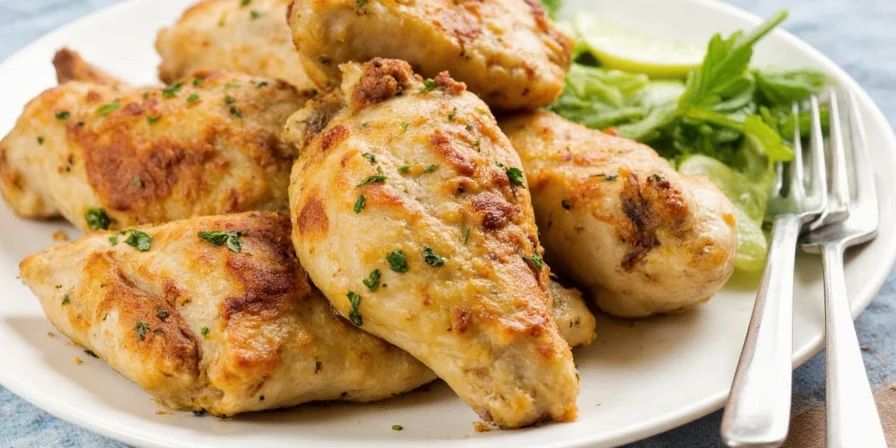
Best Herbs for Pan-Seared Chicken
Delicate cooking requires careful herb timing:
- Sage - Fry leaves in 350°F oil for 15 seconds for optimal crispness
- Thyme - Add during last 5 minutes of cooking to preserve flavor compounds
- Parsley - Use chopped stems in marinades for stronger flavor infusion
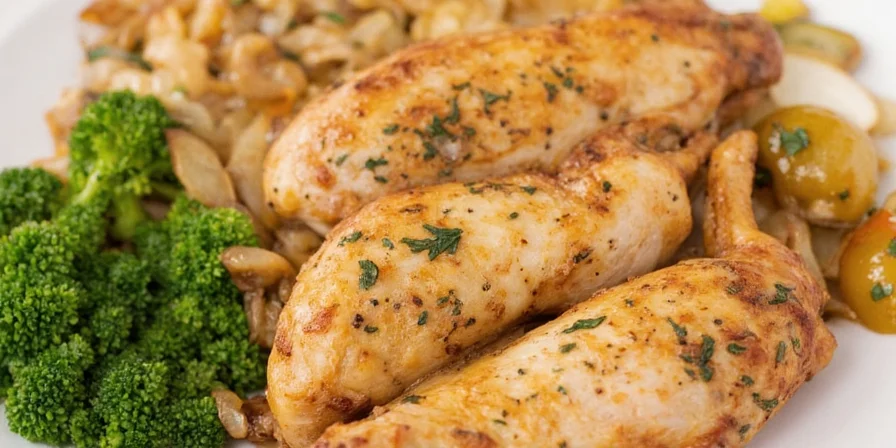
Best Herbs for Braised Chicken
Slow cooking benefits from herbs with gradual flavor release:
- Bay Leaf - Add to cold water when starting braises for maximum flavor extraction
- Marjoram - Add during final 15 minutes for subtle floral notes
- Thyme - Use whole sprigs that can be easily removed after cooking

Best Herbs for Cold Chicken Dishes
Cold preparations require different herb handling:
- Basil - Add only after chicken cools below 140°F to preserve freshness
- Dill - Use exclusively in cold sauces below 40°F for optimal flavor retention
- Tarragon - Add to mayonnaise-based salads only after complete cooling
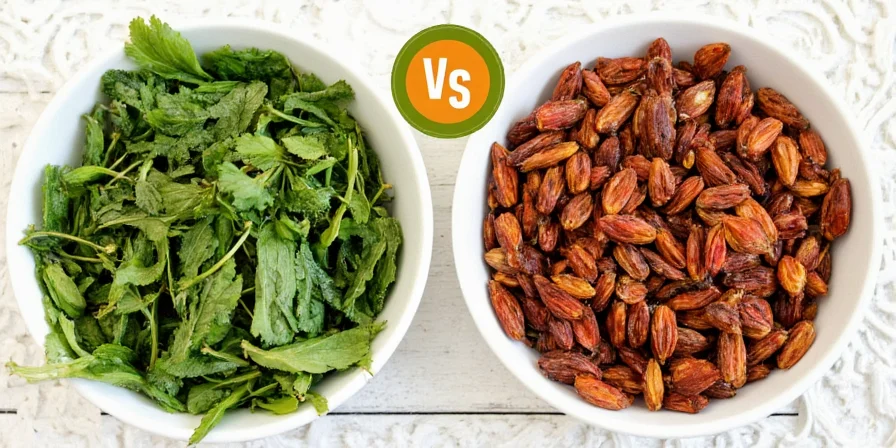
| Herb | Best Cooking Method | Add During Cooking | Common Mistake to Avoid |
|---|---|---|---|
| Thyme | Roasting, Braising | Last 15-20 minutes | Adding too early causing flavor loss |
| Rosemary | Grilling, Roasting | Last 20-25 minutes | Burning from direct high heat |
| Sage | Pan-searing | Last 10-15 minutes | Bitterness from overcooking |
| Oregano | Grilling, Tomato-based | Start of cooking (dried) | Using fresh in long-cooking dishes |
| Basil | Cold dishes only | After cooking | Applying heat destroying flavor |
| Parsley | All methods | After cooking | Not using flavorful stems |
| Marjoram | Braising, Cream sauces | Last 8-12 minutes | Overpowering delicate dishes |
| Tarragon | Cold dishes, Cream sauces | After cooking | Excessive heat causing bitterness |
| Dill | Cold dishes only | After cooking | Heat exposure destroying flavor |
| Bay Leaf | Braising, Soups | Start of cooking | Leaving in too long causing bitterness |
Proven Herb Blends for Perfect Chicken Every Time
Skip the guesswork with these tested combinations:
- Classic Roast Chicken Blend: 3 parts thyme, 2 parts rosemary, 1 part sage (by volume)
- Mediterranean Chicken Blend: 2 parts oregano, 1 part parsley, 1 part basil (for cold applications)
- Weeknight Efficiency Blend: 3 parts thyme, 2 parts marjoram, 1 part sage (store up to 30 days)
Frequently Asked Questions
When should I use dried versus fresh herbs with chicken?
Dried herbs work best in long-cooking methods (braising, stewing) where rehydration occurs, while fresh herbs shine in finishing applications. Use a 3:1 fresh-to-dried ratio by volume. Never substitute dried basil for fresh in chicken dishes as heat destroys its volatile compounds.
Why does my rosemary chicken always taste bitter?
Bitterness occurs when rosemary is exposed to direct flame or oil above 300°F. Blanch needles before use, avoid direct flame contact, and pair with sweet elements like honey to neutralize bitter compounds.
How can I prevent herbs from burning during grilling?
Create herb-infused oils below 350°F and apply during last 5 minutes of cooking. For direct application, use whole sprigs instead of chopped herbs—they char slower. Always place herbs on indirect heat zones when grilling.
What's the most versatile herb for chicken?
Thyme is the most versatile herb for chicken, working well with all cooking methods from roasting to grilling to braising. Its balanced earthy flavor enhances chicken without overwhelming it.
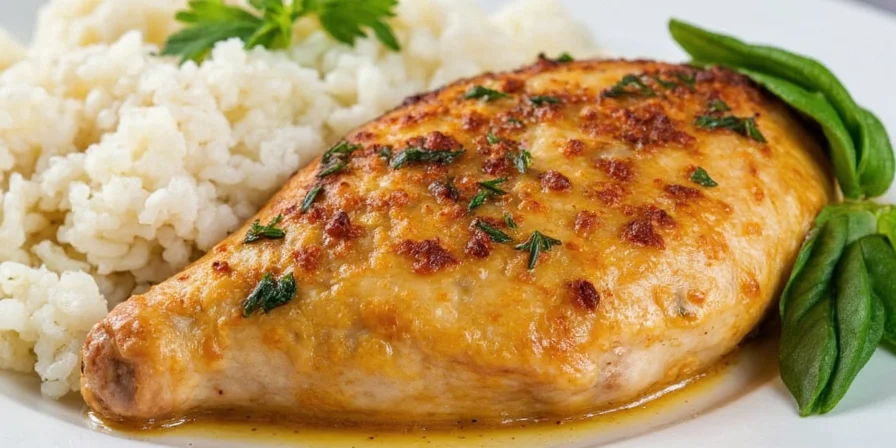


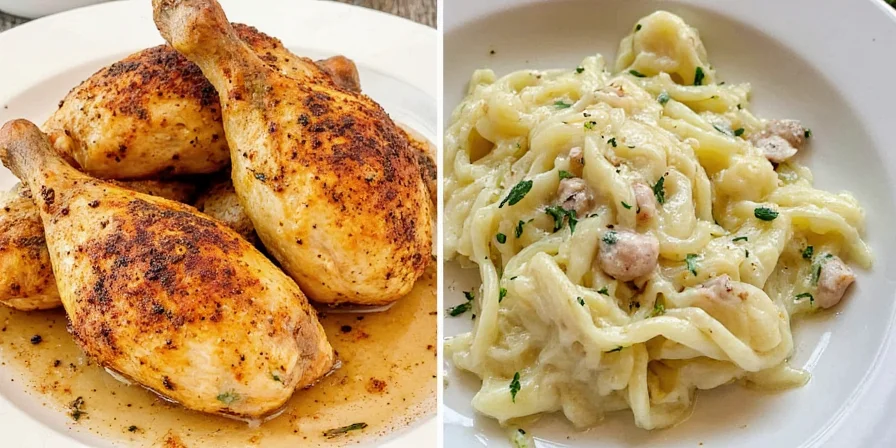









 浙公网安备
33010002000092号
浙公网安备
33010002000092号 浙B2-20120091-4
浙B2-20120091-4